1 potentially fatal flaw for every West contender
By this weekend, 16 NBA teams will have survived the marathon that is the regular season to put themselves in a position to compete for a championship. But the postseason is a different animal. The regular season can reveal who teams are, but the playoffs have a way of reminding teams - and players - who they are not, exposing and exploiting their flaws in ways only the intensity of playoff basketball can. Every possession is magnified while coaches look to maximize every possible advantage.
We've already highlighted one reason for concern for each of the Eastern Conference's top teams. Here's our take on the potentially fatal flaws to be found in these seven Western Conference contenders.
Denver Nuggets
Do they have a championship-level No. 2?
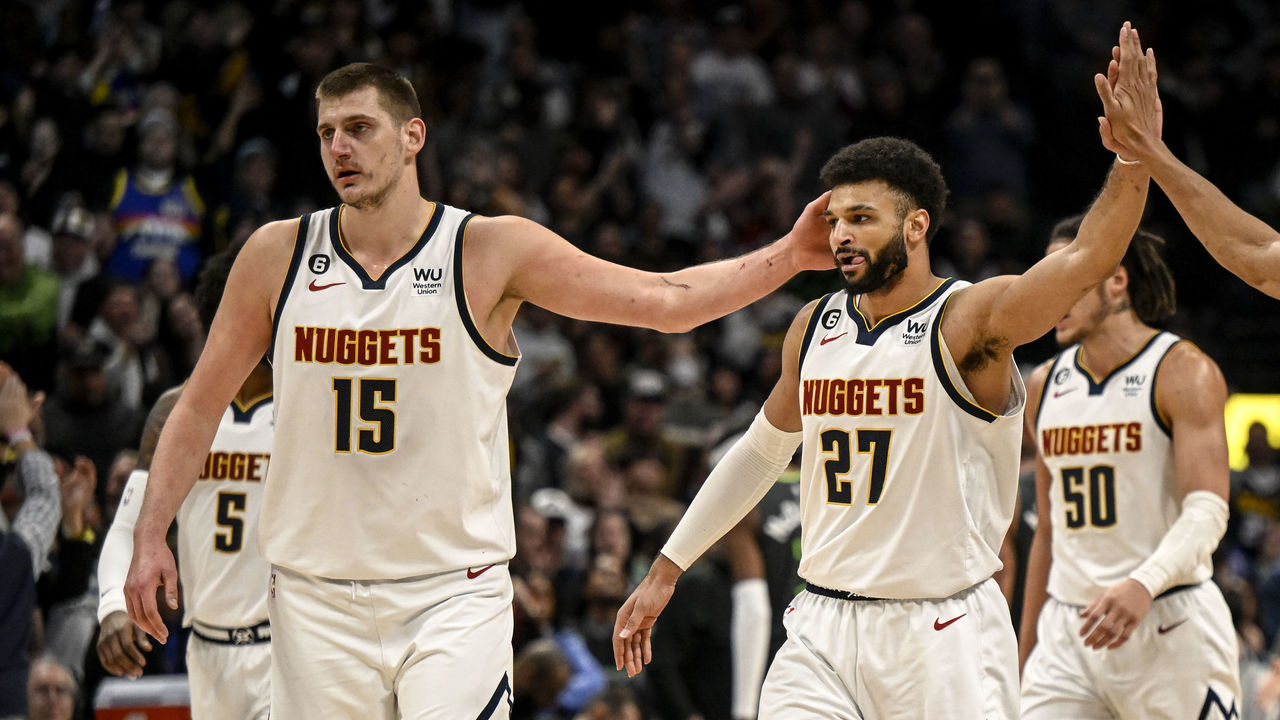
The Nuggets' defense and performance on the road are both worthy of discussion here, but we'll explore those issues when discussing rival West contenders below. Instead, one factor that could derail Denver's bid for the first championship in franchise history is the lack of a surefire, championship-level second star.
One could also say the Nuggets don't have a championship-level shot creator to complement two-time MVP Nikola Jokic. Denver finished 21st in pull-up efficiency during the regular season, with an effective field-goal percentage on pull-up jumpers (45.1%) that ranked 16th among the 18 teams still standing.
Jamal Murray would like to rebut that sentiment, though; in his first season since tearing his ACL in 2021, the 26-year-old guard averaged 20 points and 6.2 assists while shooting 49.4% from two-point range, 39.8% from deep, and 83.3% from the free-throw line. Murray also finished 16th in pull-up attempts this year, with a respectable effective field-goal percentage on those shots (48.8%) that bested the marks of stars like Chris Paul, DeMar DeRozan, Paul George, Zach LaVine, Trae Young, Jimmy Butler, and Jayson Tatum, among others.
Murray was a flamethrower the last time we saw him in the playoffs, averaging 26.5 points on 51-45-90 shooting to help Jokic lead the Nuggets all the way to the 2020 Western Conference finals.
Memphis Grizzlies
Halfcourt offense
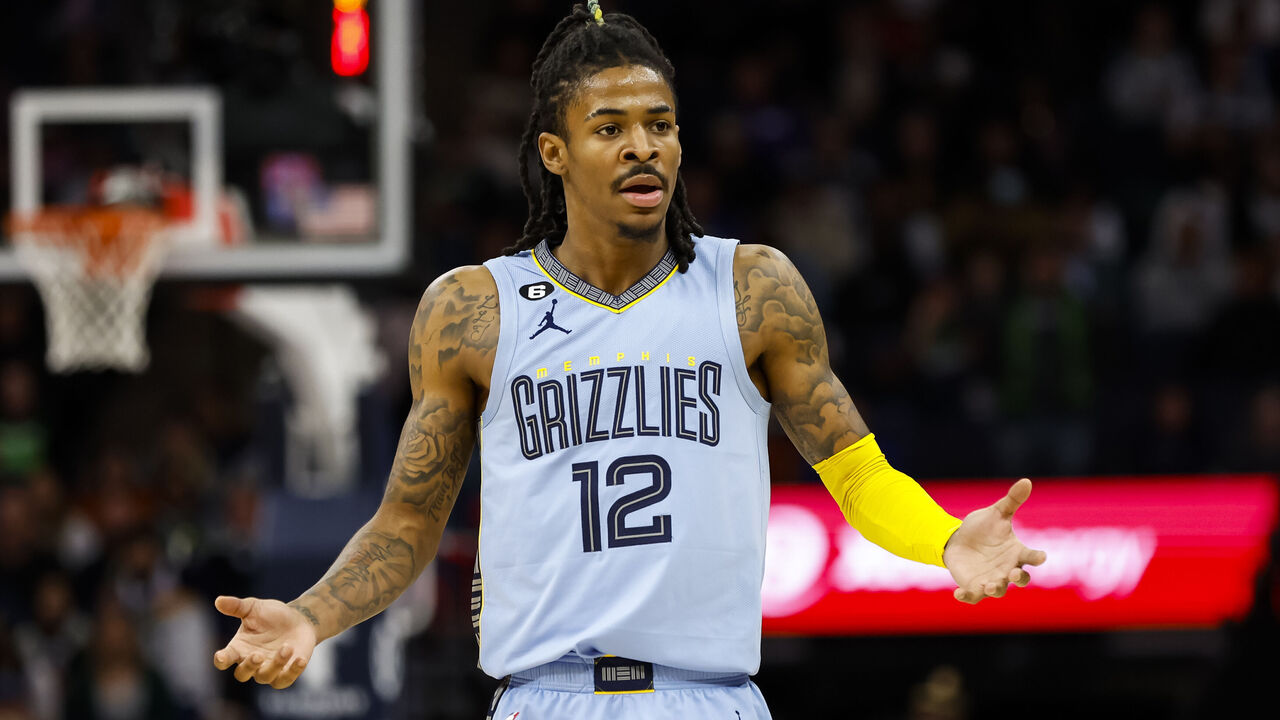
At first glance, the Grizzlies' 11th-ranked offense seems like a suitable complement to their top-three defense. Memphis boasts a star guard in Ja Morant, a solid secondary scorer in Desmond Bane, and shooters like Luke Kennard and Tyus Jones. The team also takes care of the ball (ninth-lowest turnover rate), crashes the offensive glass (sixth-highest offensive rebound rate), and thrives in transition; only the Indiana Pacers produced more than the Grizzlies' 25.8 fast-break points per game this season.
But all of those traits mask the fact that Memphis struggles to score in the halfcourt - a major concern entering the postseason. The Grizzlies' mark of 96.9 points per 100 halfcourt plays ranked 22nd in the league, according to Cleaning The Glass. The only team still standing that ranked worse was the Miami Heat, who haven't even booked their playoff spot yet. Second-seeded Memphis is supposed to be competing for a title. In the 19 previous seasons for which Cleaning The Glass provides data, the worst champion in halfcourt efficiency - the 2020 Los Angeles Lakers - still ranked 16th leaguewide. That team also had LeBron James to lean on.
With rebounding machine Steven Adams expected to miss the entire postseason, the Grizzlies also won't get as many second chances to bail out their sputtering offense. With Adams on the court, Memphis collected a whopping 37.4% of available rebounds off its own missed field goals, according to PBP Stats. With Adams off, that number plummeted to 26.5%. That would be the difference between first and 20th in offensive rebound rate.
Sacramento Kings
A not so royal defense
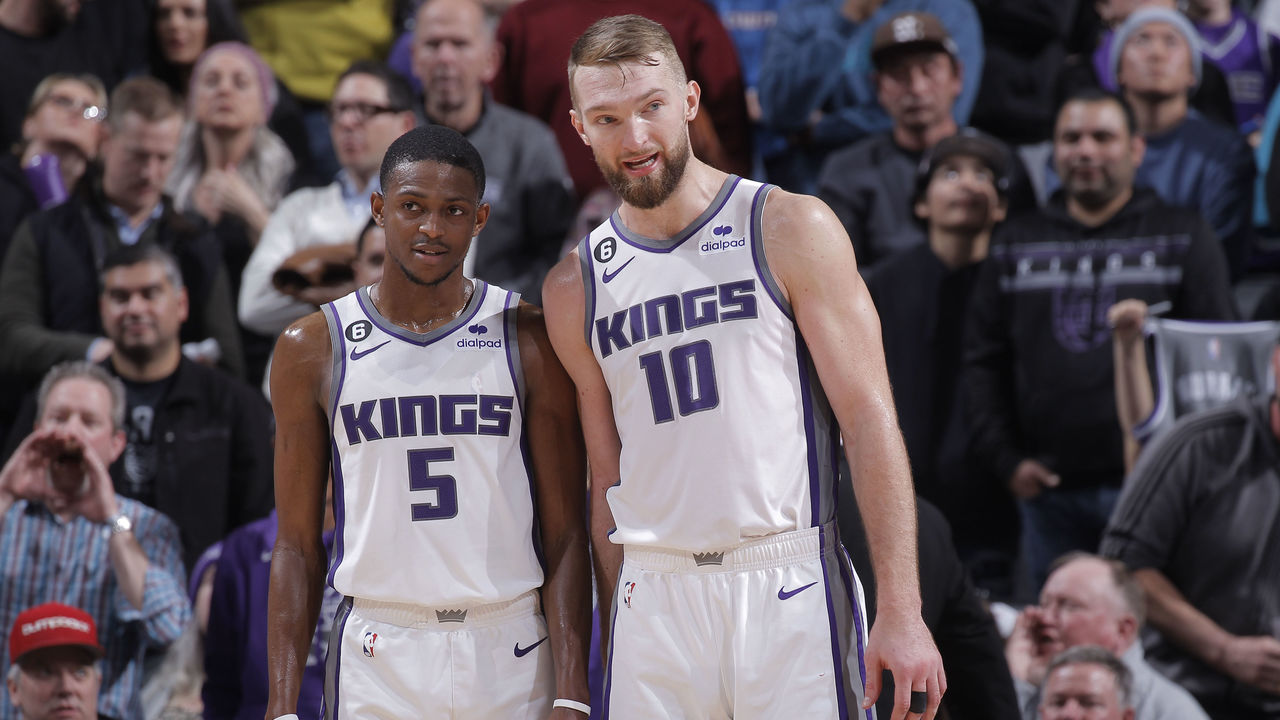
The entertaining Kings were the league's best story this season, and Sacramento should be celebrating the team that finally ended the longest playoff drought in NBA history. But now it's time to separate the contenders from the pretenders, and Sacramento's 24th-ranked defense is the reason the third-seeded Kings belong to the latter category.
The worst defense to ever win an NBA championship was the 2001 Lakers' 22nd-ranked unit: Los Angeles finished 1.8 points per 100 possessions worse than the league average during the regular season. The only other team to win a championship with a below-average defense was the 1956 Philadelphia Warriors, who finished 0.5 points per 100 possessions worse than average. The 2023 Kings finished a full two points worse than average on the defensive end while finishing seventh from the bottom in defensive efficiency.
Sacramento plays a thrilling brand of basketball that's easy to enjoy, and it kept us watching from October to April. But it won't work in May or June.
Phoenix Suns
Getting to the rim
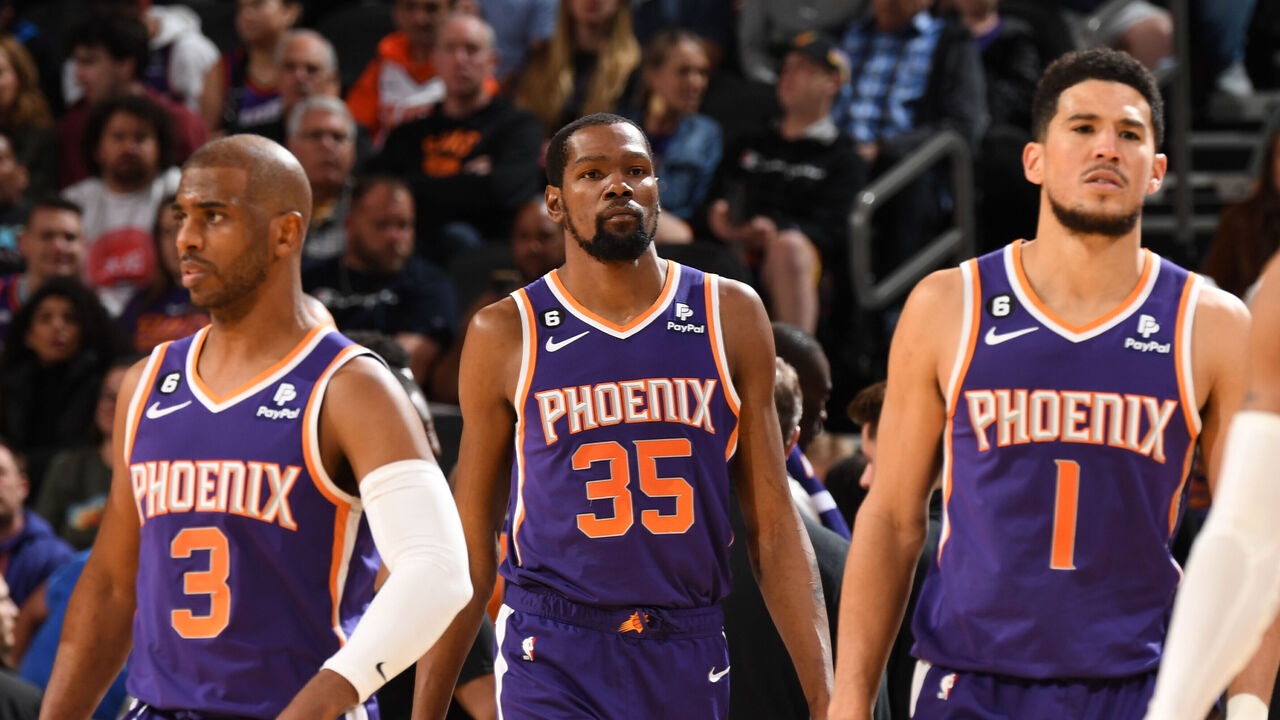
If Kevin Durant is healthy and available, it's tough to bet against the Suns, who won all eight games Durant suited up for after acquiring the former MVP ahead of the trade deadline. But no contender is flawless, and if there's one thing that could undo the Suns' best-laid plans, it's their shot profile.
A league-worst 25.9% of Phoenix's field-goal attempts come at the rim, and the Suns are a 3-point-averse team. They ranked 20th in 3-point attempt rate for the season and 25th after the deadline. An inability to get to the rim and an unwillingness to let it fly from deep help explain why the team is dead last in Cleaning The Glass' location-based effective field-goal percentage rankings.
The catch is that location eFG% is based on league-average efficiency from the areas where teams create their shots, but Phoenix is an obvious outlier. The Suns employ three of the greatest pull-up creators and midrange shooters in basketball history in Durant, Devin Booker, and Chris Paul, making what would otherwise be an inefficient shot profile for a lesser team a scorching shot chart for the Suns.
Still, even last year's jumper-happy Golden State Warriors got to the rim more than 30% of the time, and they relied on the extra value of 3-pointers more than they did the midrange area. Some more variety in the Suns' attack would help shield them from the threat of random, inexplicable shooting slumps. That's where Deandre Ayton comes in. If the big man can punish switches and mismatches inside more consistently, Phoenix's offense should be fine - or at least more playoff-proof.
Los Angeles Clippers
Star availability
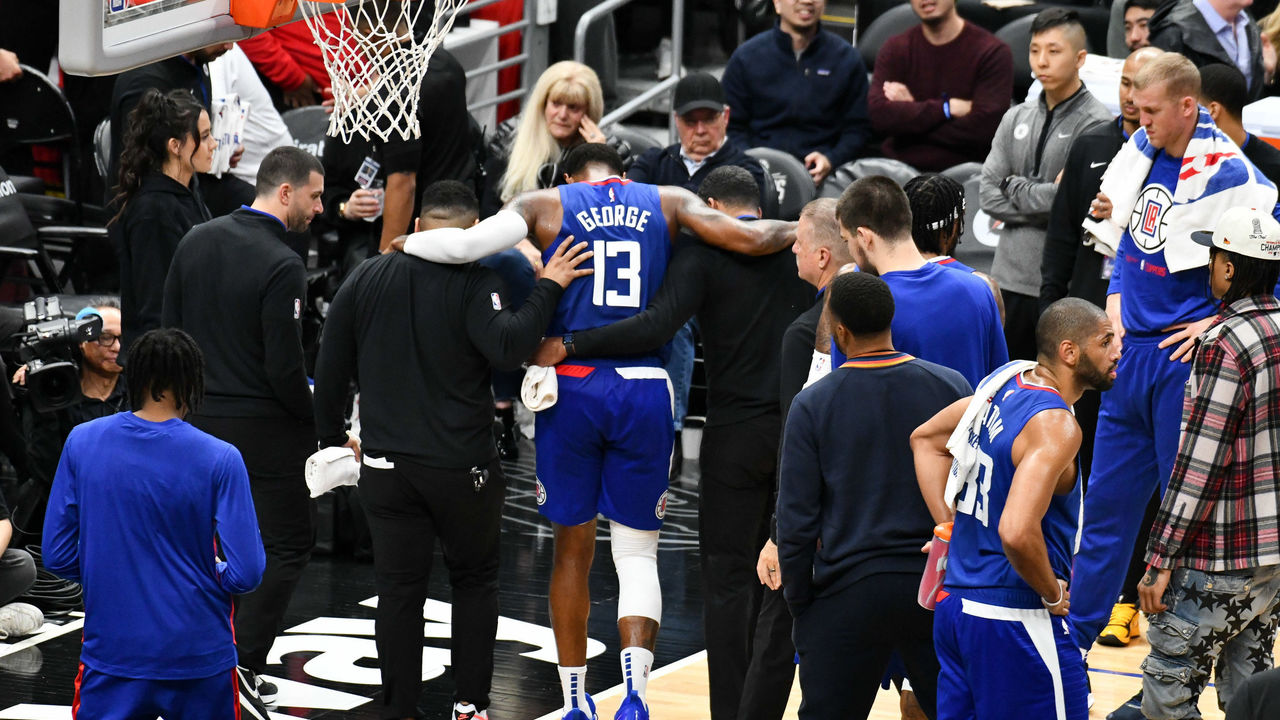
There's plenty to nitpick about the Los Angeles Clippers, and there are legitimate questions about whether Russell Westbrook might hinder them in the playoffs after he was surprisingly solid the last couple of months. But the team's biggest flaw is the one staring right at us: Kawhi Leonard and Paul George aren't available at the same time often enough.
Due to a variety of injuries and strategic rest days, Leonard and George have suited up together for only 118 games over four seasons. The duo played just 38 games together this year, with the Clippers outsourcing opponents by 8.9 points per 100 possessions in 995 minutes with both stars on the court.
If Leonard and George were healthy, L.A. would be a genuine title threat, but George is expected to start the Clippers' first-round series against Phoenix on the shelf after spraining his knee on March 21.
Golden State Warriors
Road woes
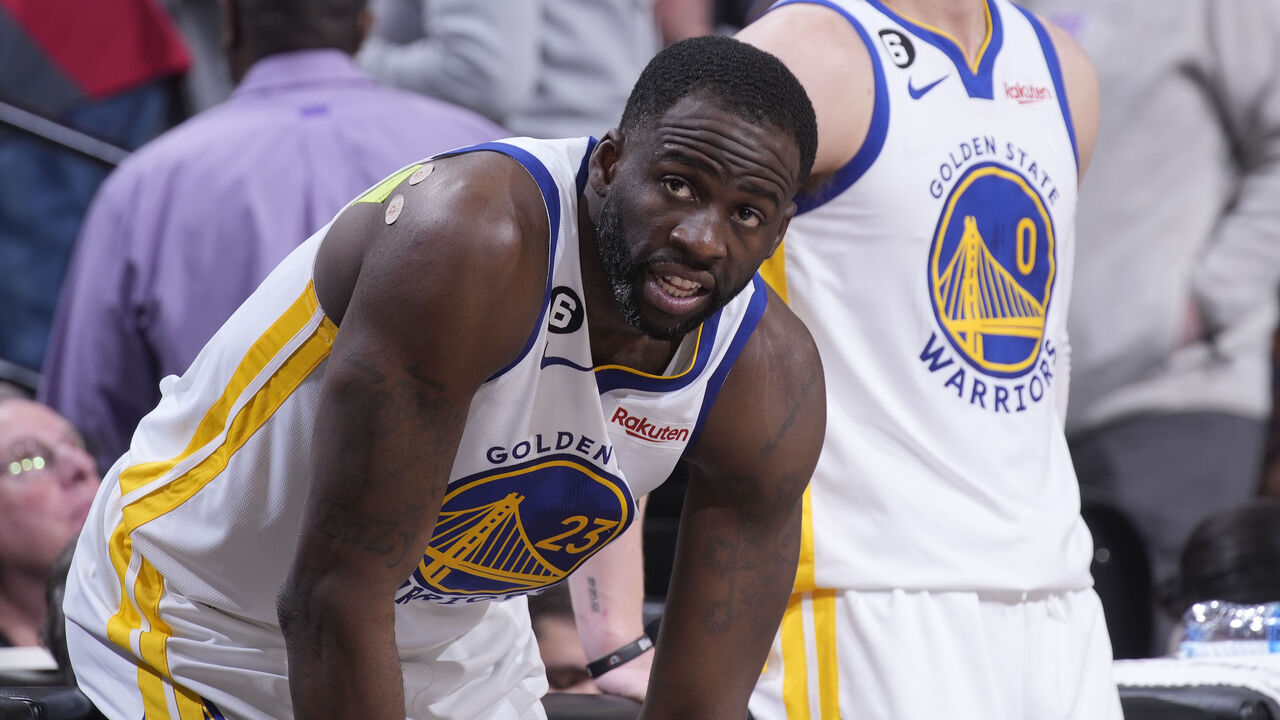
As the defending champions with a core that's won four titles over the last eight years and 2022 championship X-factor Andrew Wiggins returning to the lineup, the Warriors deserve respect. But Golden State winning the championship this season would be unprecedented due to its woeful road record.
The last NBA team to win a championship after posting a losing road record during the regular season was the 1978 Washington Bullets, who went 15-26 away from home. The worst road team to win a title, the 1958 St. Louis Hawks, posted a .333 win percentage away from home. The 2022-23 Warriors were 11-30 on the road, good for a winning percentage of .268. Only the tanking Detroit Pistons, San Antonio Spurs, and Houston Rockets were worse.
Even if one believes Golden State's defense is a larger concern than its home-road splits, the fact remains that the Warriors' season is a tale of two teams. Golden State boasted the third-best defense at home (108.4 points allowed per 100 possessions) and the league's 28th-ranked defense away from Chase Center (118.3).
As the Western Conference's sixth seed, the Warriors are unlikely to have home-court advantage in any series this spring (barring a potential second-round matchup with the Lakers).
Los Angeles Lakers
Not enough shooting
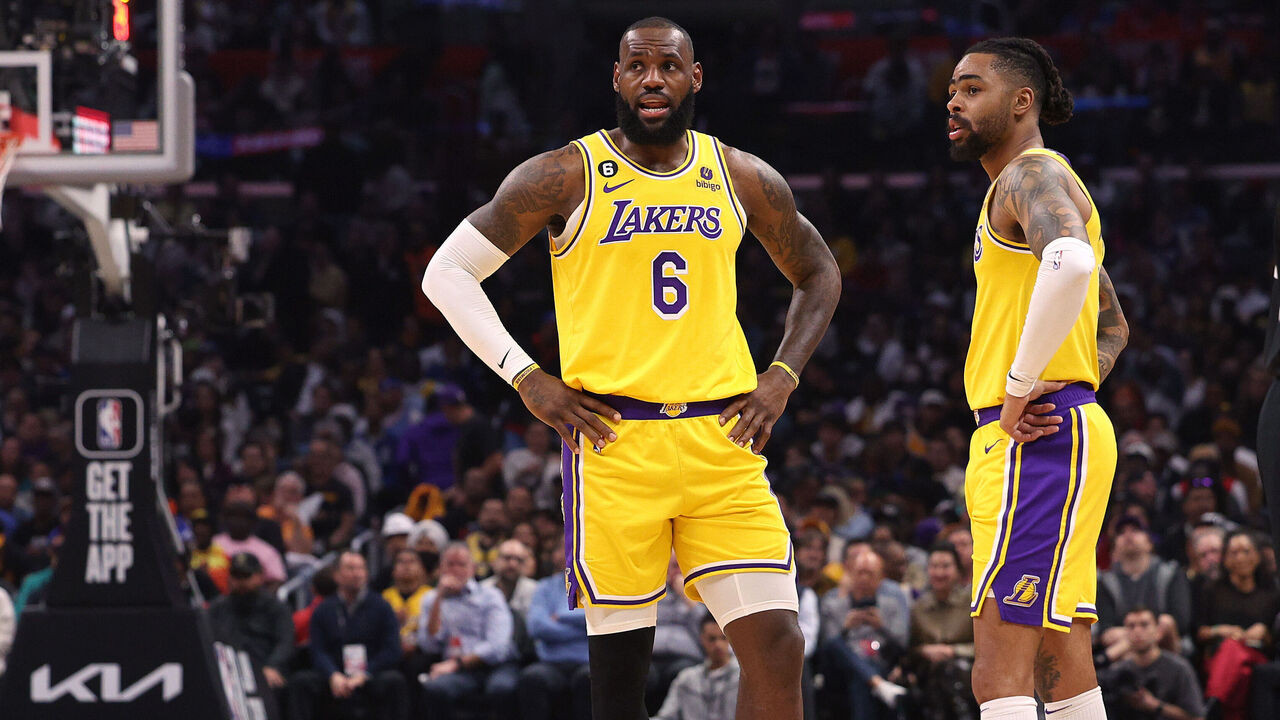
The Lakers received an infusion of shooting from the deadline-week arrivals of D'Angelo Russell and Malik Beasley, in addition to the return of Austin Reaves, and that shooting was a key factor in the Lakers' post-deadline rise. But it still might not be enough.
Though the team's shooting numbers dramatically improved post-deadline, the Lakers still finished 18th in 3-point percentage and 20th in made 3-pointers per 100 possessions between Feb. 11 (when Russell and Beasley debuted) and the end of the season. That deficiency almost burned them in Tuesday's play-in victory over the Minnesota Timberwolves, as L.A. shot 10-of-31 from deep.
Lakers fans can be forgiven for scoffing at this suggestion, however. Los Angeles' last three championship teams finished 21st (2020), 23rd (2010), and 19th (2009) in 3-point efficiency, and this year's remade team is constructed in a similar fashion to the 2020 squad that overcame its shooting concerns. Still, LeBron James is three years older than he was then, and 10 of the NBA's last 11 champions have finished top nine in 3-point shooting.
Joseph Casciaro is theScore's senior content producer.